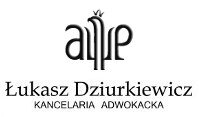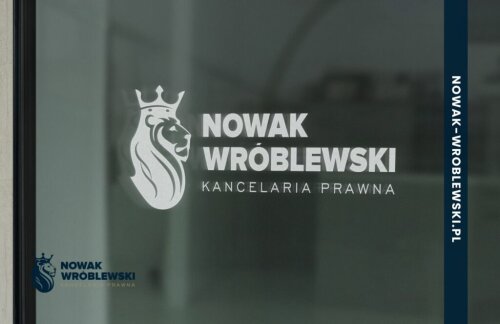Best Private Equity Lawyers in Poland
Share your needs with us, get contacted by law firms.
Free. Takes 2 min.
Or refine your search by selecting a city:
List of the best lawyers in Poland
About Private Equity Law in Poland
Private equity (PE) involves investment funds that acquire ownership stakes in private companies or take public companies private, with the overall goal of improving their value and eventually selling them for a profit. In Poland, the private equity sector has experienced robust growth due to favorable economic conditions, a strategic geographic position in Central Europe, and an expanding pool of local and international investors. Polish private equity law governs the entire investment lifecycle, from fundraising and due diligence to acquisition, management, and exit strategies. Understanding the local landscape and regulations is crucial for both investors and businesses seeking private equity capital.
Why You May Need a Lawyer
Private equity transactions can be complex and laden with risks. Engaging a qualified lawyer is important in several situations, including:
- Negotiating or reviewing investment agreements
- Structuring deals to ensure compliance with Polish company, tax, and securities law
- Conducting legal due diligence on potential investments
- Managing shareholder disputes or resolving conflicts of interest
- Assisting with regulatory approvals, especially in regulated industries
- Advising on exit strategies, such as selling to a strategic investor or through an initial public offering (IPO)
- Protecting intellectual property and negotiating employment agreements for management teams
- Ensuring compliance with competition and anti-monopoly laws
A lawyer ensures that your interests are protected throughout the transaction and helps you avoid pitfalls that could jeopardize your investment.
Local Laws Overview
Several key aspects of Polish law are particularly relevant to private equity activities:
- Company Law: The Polish Commercial Companies Code regulates partnerships and capital companies, primarily limited liability companies (sp. z o.o.) and joint-stock companies (S.A.), which are common vehicles for PE investments.
- Foreign Investment Controls: Certain strategic sectors or enterprises may be subject to restrictions on foreign acquisitions, with the Office of Competition and Consumer Protection (UOKiK) playing a supervisory role.
- Merger Control: Transactions that may affect market competition require notification to and approval by UOKiK if thresholds are met.
- Taxation: Tax structuring is a fundamental element of private equity deals. This includes capital gains tax, withholding tax, and rules around dividend payments.
- Labour Law: Employee transfers and management participation often arise in PE transactions. Legal compliance in employment matters is critical.
- Securities Regulation: Public offers or acquisitions of listed companies fall under Polish Financial Supervision Authority (KNF) oversight and market abuse regulations.
Working with legal professionals who understand both the general principles and the local nuances of Polish law can make the difference between a successful investment and costly mistakes.
Frequently Asked Questions
What is the typical process for a private equity investment in Poland?
The process generally includes deal sourcing, initial negotiations, legal and financial due diligence, agreement on terms, transaction structuring, and post-investment management or eventual exit. Each stage is governed by specific legal considerations under Polish law.
Are there any restrictions on foreign investors in Polish private equity deals?
Yes, certain strategic sectors such as defense, energy, and media have restrictions on foreign ownership. These deals may require governmental approval or notification. Most sectors, however, remain open to foreign investment.
What types of business entities are most commonly used for private equity in Poland?
Limited liability companies (sp. z o.o.) and joint-stock companies (S.A.) are the most common entities due to their flexible structures and the ability to accommodate multiple shareholders and different classes of shares.
How are private equity funds regulated in Poland?
Funds are typically structured as closed-end investment funds (FIZ) and are regulated by the Polish Financial Supervision Authority (KNF) under the Act on Investment Funds and Alternative Investment Fund Management.
What are the key legal documents in a private equity transaction?
Common documents include the letter of intent, confidentiality agreement, share purchase agreement, investment agreement, shareholders’ agreement, and various ancillary agreements such as non-compete or management contracts.
Do private equity deals require antitrust approval in Poland?
If a transaction meets specific market share or turnover thresholds, the parties must notify and obtain approval from the Office of Competition and Consumer Protection (UOKiK) before closing the deal.
What are the most important tax considerations for private equity?
Issues such as capital gains tax, withholding tax, transfer pricing, VAT implications, and the use of tax-efficient structures are all highly relevant and should be assessed early in the deal process.
How is management incentivized in Polish private equity deals?
Management participation programs, such as share options or phantom shares, are commonly used. These require careful legal structuring to comply with Polish corporate and tax laws.
What are the exit options for private equity investments in Poland?
Common options include trade sales to strategic investors, secondary sales to other funds, initial public offerings (IPOs), or management buyouts. Each exit route is subject to different legal requirements and market conditions in Poland.
How can a lawyer help mitigate risks in private equity transactions?
A lawyer can identify potential legal pitfalls, ensure compliance with all regulatory requirements, draft and negotiate contracts, conduct due diligence, and advise on tax and employment issues. Their guidance is essential for achieving a successful outcome.
Additional Resources
If you are seeking more information about private equity in Poland, the following resources and organizations may be useful:
- Polish Financial Supervision Authority (KNF)
- Office of Competition and Consumer Protection (UOKiK)
- Polish Private Equity and Venture Capital Association (PSIK)
- Ministry of Development and Technology of Poland
- Legal and business periodicals focusing on the Polish economy
These bodies provide regulatory guidance, market data, and networking opportunities relevant to private equity and investment activities.
Next Steps
If you are considering a private equity transaction or require advice on related matters in Poland, it is advisable to seek legal guidance from a law firm specializing in corporate and investment law. The process generally involves:
- Identifying law firms with expertise in the private equity sector
- Arranging an initial consultation to discuss your goals and concerns
- Preparing relevant documents and questions for the meeting
- Reviewing your objectives and assessing potential legal risks with your chosen advisor
- Collaborating with legal experts throughout the transaction to ensure your interests are protected at every stage
Proper legal support is essential to maximize the chances of a successful investment and to navigate the complexities of private equity law in Poland.
Lawzana helps you find the best lawyers and law firms in Poland through a curated and pre-screened list of qualified legal professionals. Our platform offers rankings and detailed profiles of attorneys and law firms, allowing you to compare based on practice areas, including Private Equity, experience, and client feedback.
Each profile includes a description of the firm's areas of practice, client reviews, team members and partners, year of establishment, spoken languages, office locations, contact information, social media presence, and any published articles or resources. Most firms on our platform speak English and are experienced in both local and international legal matters.
Get a quote from top-rated law firms in Poland — quickly, securely, and without unnecessary hassle.
Disclaimer:
The information provided on this page is for general informational purposes only and does not constitute legal advice. While we strive to ensure the accuracy and relevance of the content, legal information may change over time, and interpretations of the law can vary. You should always consult with a qualified legal professional for advice specific to your situation.
We disclaim all liability for actions taken or not taken based on the content of this page. If you believe any information is incorrect or outdated, please contact us, and we will review and update it where appropriate.
Browse private equity law firms by city in Poland
Refine your search by selecting a city.

















